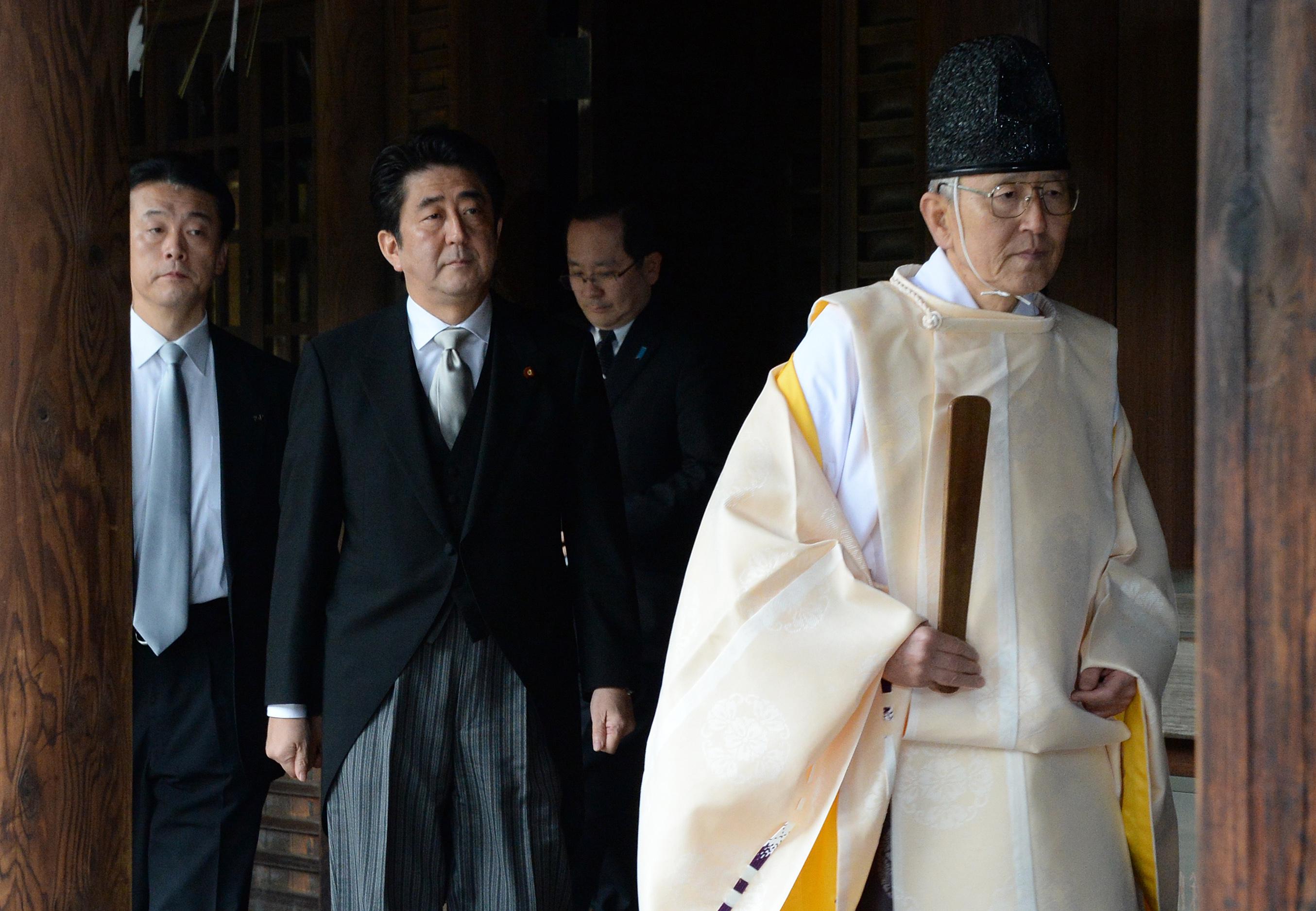Amid escalating tensions in the East China Sea, Japanese Prime Minister Shinzo Abe seems to be letting his nationalist flag fly. Last week he made a visit to the controversial Yasukuni shrine, which honors Japan’s World War II dead, including a number of convicted war criminals, and is an important symbol for Japan’s nationalist far right. It was the first visit to the shrine by a sitting prime minister since 2006. Then in a New Year’s comment published yesterday, Abe predicting that the country’s post-war constitution, which limits its military to self-defense, “will have been revised” by 2020 when Tokyo hosts the Olympic Games.
“Now is the time for Japan to take a big step forward toward a new nation-building effort, Abe wrote. “We will resolutely protect to the end Japan’s territorial land, sea and air.”
Both Japan’s wartime actions and post-war demilitarization are somewhat personal issues for Abe, whose grandfather Nobusuke Kishi was commerce minister during the war and served as prime minister in the 1950s. Kishi had been accused by the Americans of war crimes and later opposed the adoption of the pacifist constitution.
For obvious reasons, the Kim family of North Korea gets most of the international intention, but we’re actually at an interesting moment right now where the major Northeast Asian rivals are all ruled by leaders with controversial family legacies.
In Japan, there’s Abe, whose father was also foreign minister in the 1980s. In South Korea, President Park Geun-hye is the daughter of authoritarian President Park Chung-hee, who ruled for nearly two decades after taking power in a military coup in 1961. Park has apologized for some of the abuses committed during her father’s rule, though hasn’t condemned him outright. She’s differed with her father’s legacy on some key issues of foreign policy, such as pushing for closer relations with North Korea. Though her father signed the treaty that normalized relations with Japan in 1965, Geun-hye has been more skeptical, recently spurning a Seoul-Tokyo summit and pushing the Japanese government for a more comprehensive apology for its wartime actions.
President Xi Jinping’s father, Xi Zhongxun, gets less attention in China. One of Mao Zedong’s top lieutenants, then one of the most prominent victims of his purges, the elder Xi was known as something of a moderate by Chinese standards, an economic reformer who reportedly opposed the Tiananmen crackdown in 1989. It’s not yet quite clear whether the younger Xi identifies more with his father’s early career as a revolutionary or later days as a voice for moderation and reform, and not surprisingly, official biographies have tended to downplay his famous father.
The current round of tensions in Northeast Asia sometimes seems, from the outside, to have exploded out of nowhere, but for the countries involved, they have roots dating back at least to World War II, if not further. So it seems noteworthy that the countries involved all seem to be led by figures with some unfinished family business to attend to.
